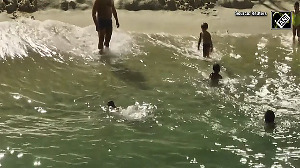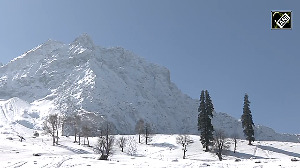Anti-doping crusaders and world soccer's governing body are still divided over penalties for drug offences in sport.
Seven months after the unveiling of the World Anti-Doping Agency's Anti-Doping Code in Copenhagen, WADA and FIFA are still unable to see eye to eye on the contentious issue.
While WADA demands a mandatory automatic two-year ban for an athlete found guilty of taking a banned substance, FIFA insists each case must be dealt with on an individual basis and that a blanket ban is wrong.
FIFA president Sepp Blatter reiterated the governing body's stance last week at its Extraordinary Congress in Doha, with comments which WADA president Richard Pound says puzzled him.
Pound this week has written to Blatter for clarification.
"I find these comments made by Mr. Blatter, if true, to be puzzling," Pound said. "WADA has made every effort to address FIFA's concerns, particularly regarding sanctions, in preparation of the Code.
"It is important to remember that FIFA was part of the unanimous acceptance of the Code at the World Conference on Doping in Sport in Copenhagen earlier this year."
Pound said WADA staff have worked closely with FIFA representatives since the World Conference to address issues regarding sanctions in the Code.
WORKING GROUP
At FIFA's urging, WADA created a working group to look at how sanctions have been applied since January 1 2001, and invited FIFA to join in this group, although FIFA subsequently declined to participate.
WADA and FIFA have worked on anti-doping issues together under a Memorandum of Understanding since 2002.
In addition, WADA Director General David Howman met recently with Jiri Dvorak, doping expert on the FIFA Sports Medical Committee, to discuss a number of issues of mutual interest including FIFA's acceptance of the Code.
Pound said he has asked to meet Blatter for further discussion on the Code and sanctions.
FIFA's Head of Communications Markus Ziegler said on Friday that Blatter's comments were merely an underlining of the body's stance.
"Our main point is with the two-year suspension... we do not agree with that," he said.
"It is just not possible from a legal point of view. Each case must be dealt with separately... each person has the right to be properly assessed. (The penalty) could be less, but it could be more.
"We approved the (anti-doping) code (in March) in principle but said we had certain reservations... we still have those."
Jacques Rogge, president of the International Olympic Committee, has repeatedly stated that there will be no place for sports organisations at the Olympic Games who do not accept and implement the World Anti-Doping Code.
The Olympic Charter has been amended to state that the Code is obligatory for the whole Olympic Movement and that only sports that accept and implement the Code can be included and remain in the program of the Olympic Games.








 © 2025
© 2025